Active connectors are passive optical devices frequently used in conjunction with optical module interfaces.
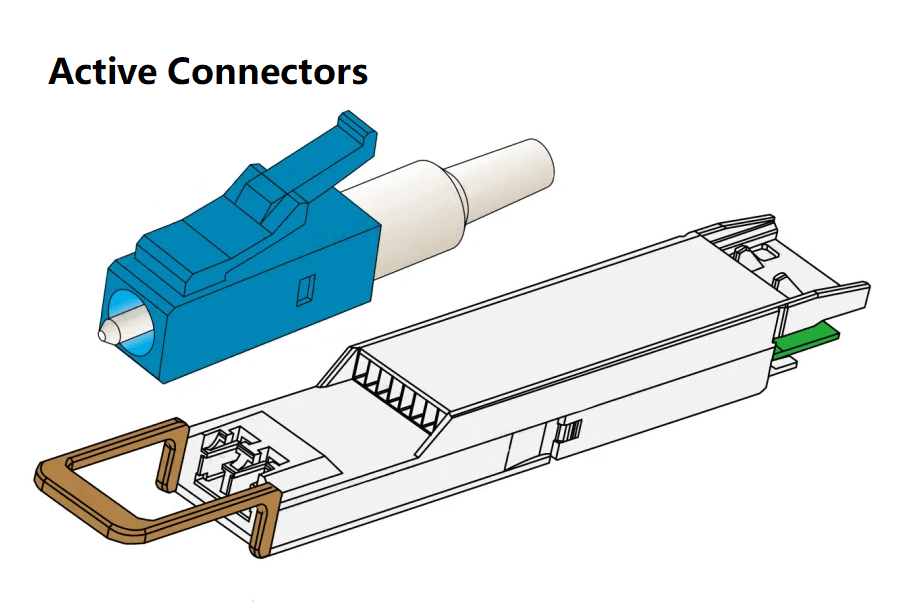
These connectors, which are attached to the optical side of a module, generally adhere to standardized processes to form universally accepted physical and performance interfaces, thereby enabling interoperability among various manufacturers. Standardization, as a process, involves achieving industry consensus. Over time, newer designs may be incorporated into the standards, evolving into industry-wide interoperability norms.
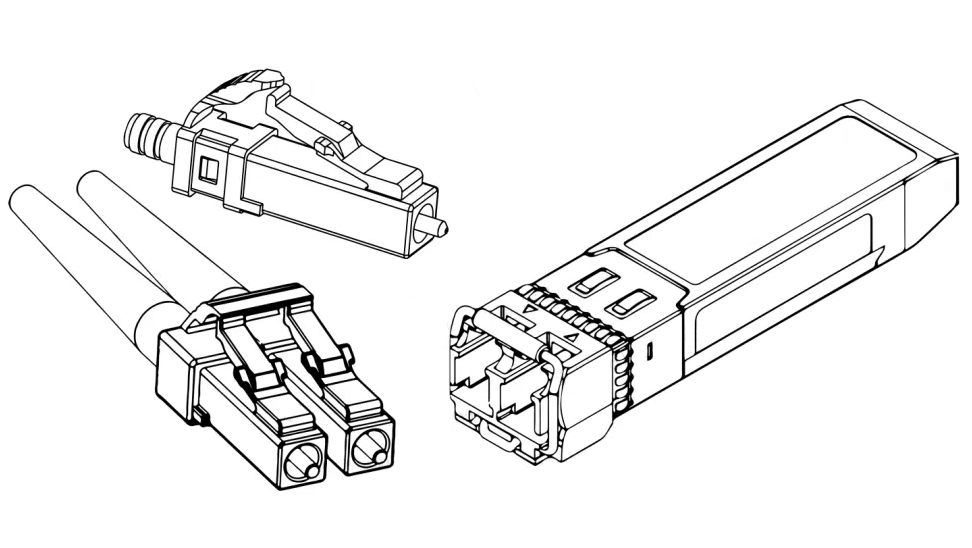
The purpose of such interoperability is to reduce costs across the industry by splitting the supply chain into different segments. Standardized interfaces allow products from different manufacturers to be interchangeable—just like USB interfaces and mobile phone charging cables, which are common examples of standard interfaces.
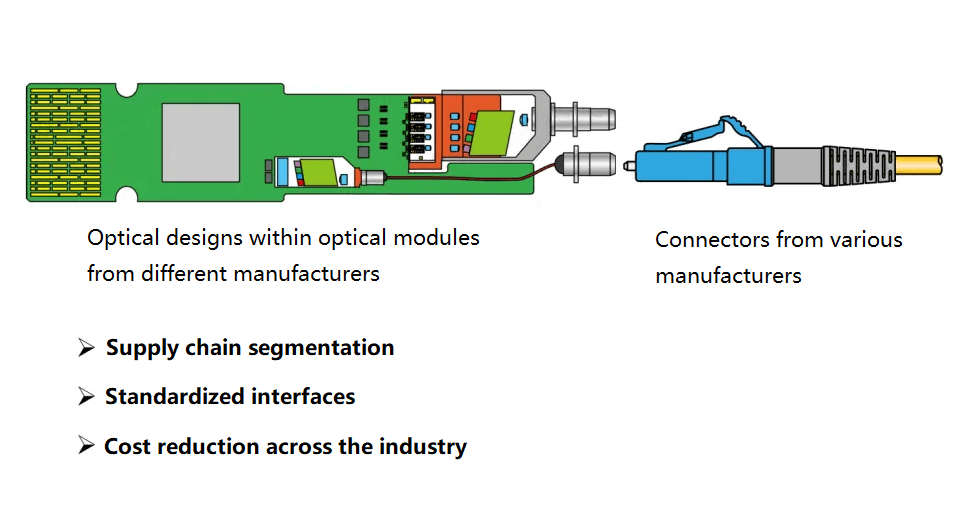
Common Types of Active Connectors
FC Connector
Known as a ferrule connector, it uses a screw-like mechanism for fixation and features a sturdy metallic shell. While highly stable and suitable for many scenarios, its cost is relatively high, and it is incompatible with APC (angled physical contact). As a result, its usage in modern optical modules is minimal.
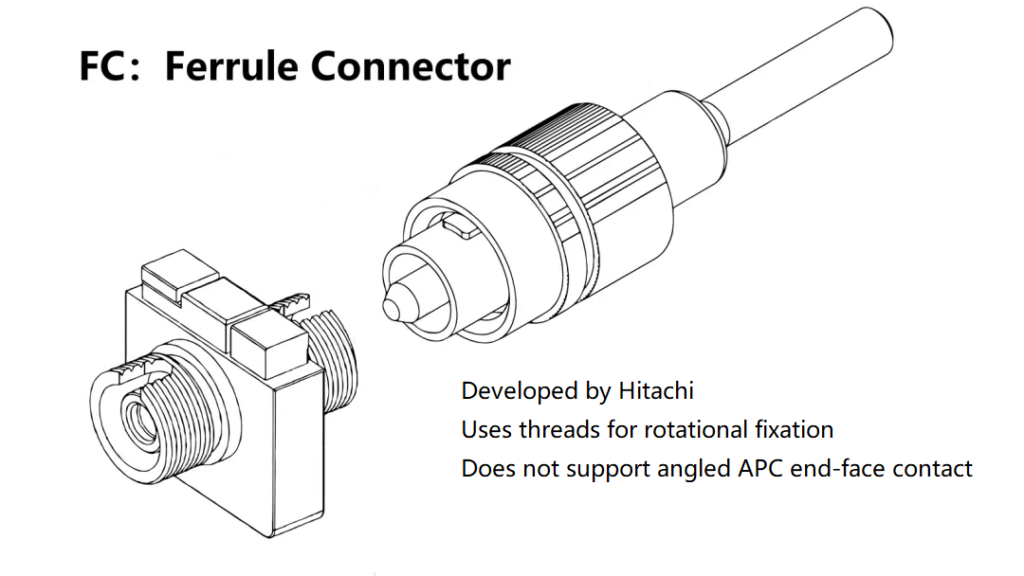
SC Connector
Widely used in Passive Optical Network (PON) systems, the SC connector, often referred to as a subscriber connector, features a ceramic ferrule with a diameter of 2.5 mm. Its primary characteristics include a simple, large, and robust design, making it ideal for fixed network access for everyday users.
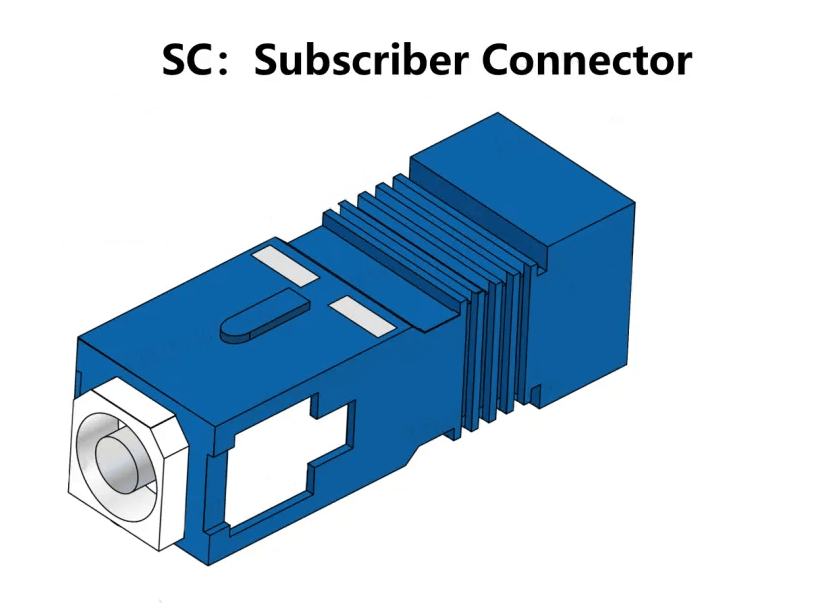
LC Connector
Smaller in size, the LC connector is extensively utilized in data center modules and 5G base station modules.
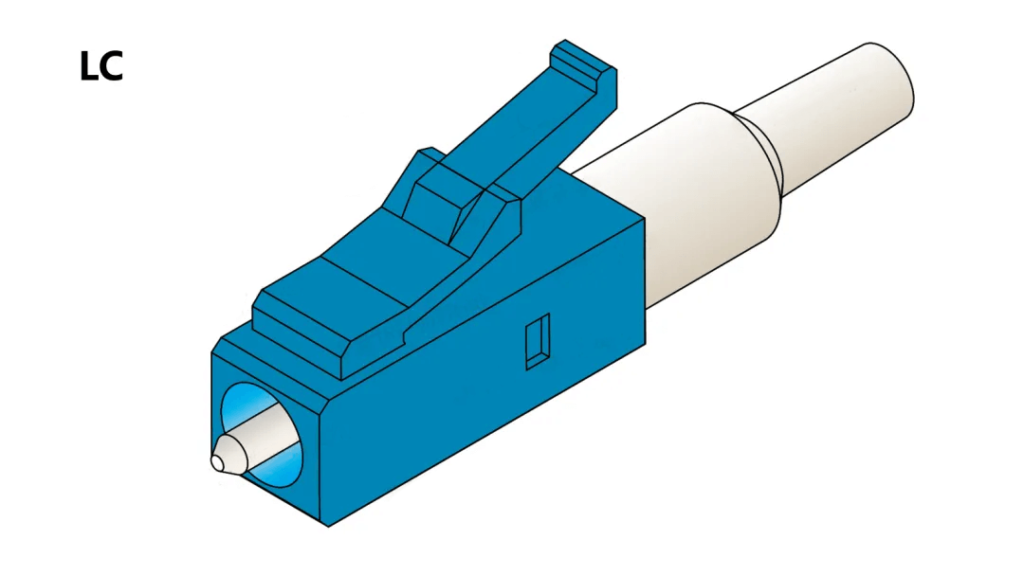
Designed originally by Bell Labs, which later became Lucent Technologies, the “L” in LC stands for Lucent. It follows a push-pull latch mechanism with a ceramic ferrule diameter of 1.25 mm. Its compact and precise design aligns well with the SFP (small form-factor pluggable) optical modules and continues to be widely used today.
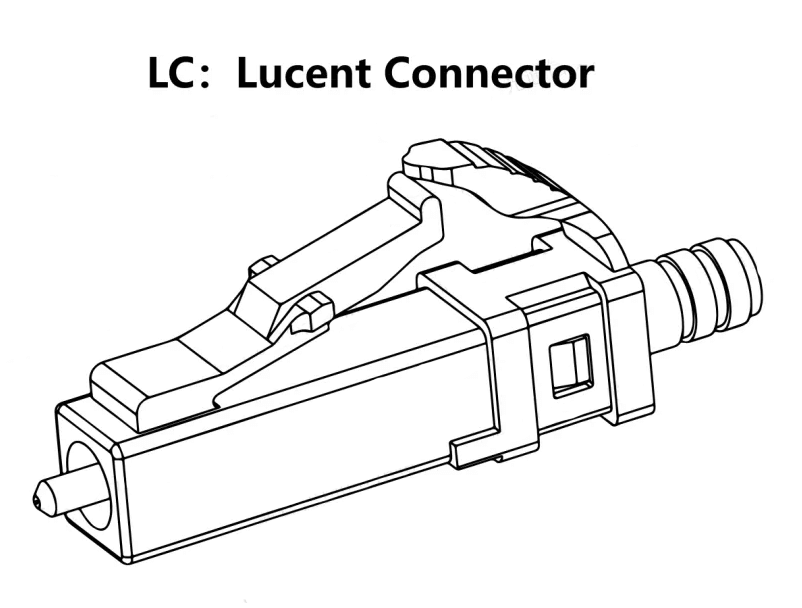
CS Connector
Designed for the 400G era, the CS connector maintains compatibility with LC ferrules (1.25 mm in diameter) while reducing its overall structure size by 40%. This dual-port design, developed by Senko, doubles the density of LC connectors and is primarily used in QSFP-DD and OSFP modules.
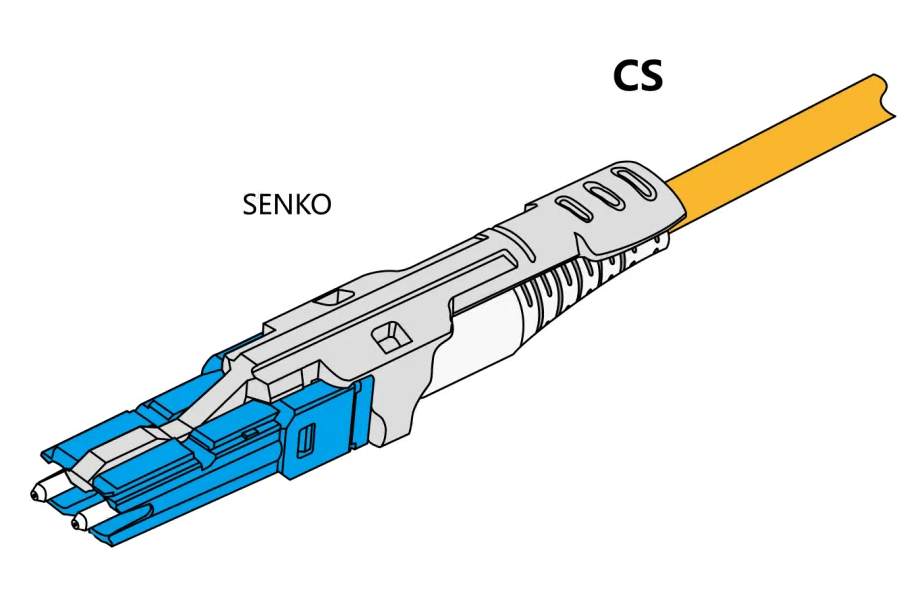
SN Connector
Also compatible with LC’s 1.25 mm ferrules, the SN connector features an even more compact structure and is used in high-density modules such as QSFP-DD. It enables a connector density four times that of LC connectors.

MDC Connector
Designed by US Conec, the MDC connector mirrors SN in terms of density and supports four times the connection capacity of LC connectors.
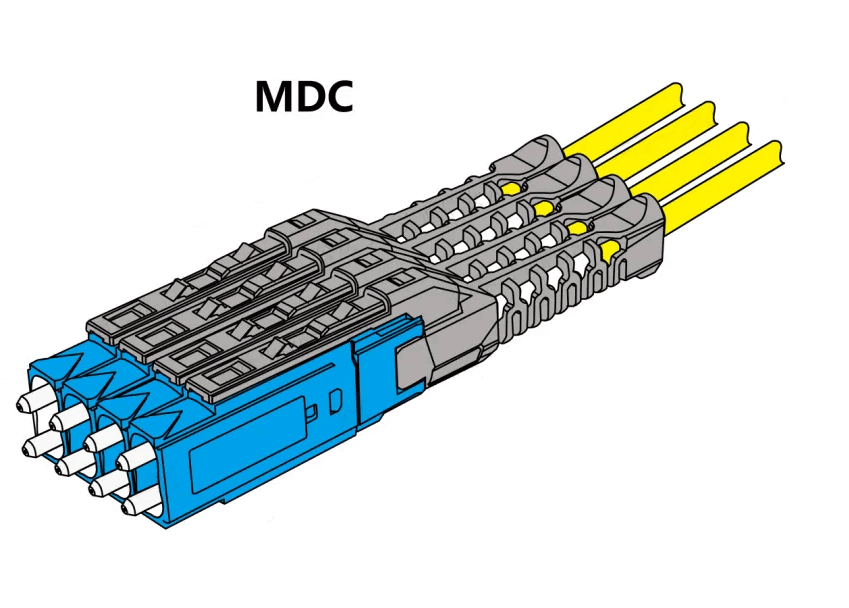
Optical Ferrules and Interfaces
The majority of these connectors employ ceramic ferrules, which hold capillary fibers for optical path alignment. However, surface roughness, dust, or contaminants can lead to optical reflection, impairing signal transmission.
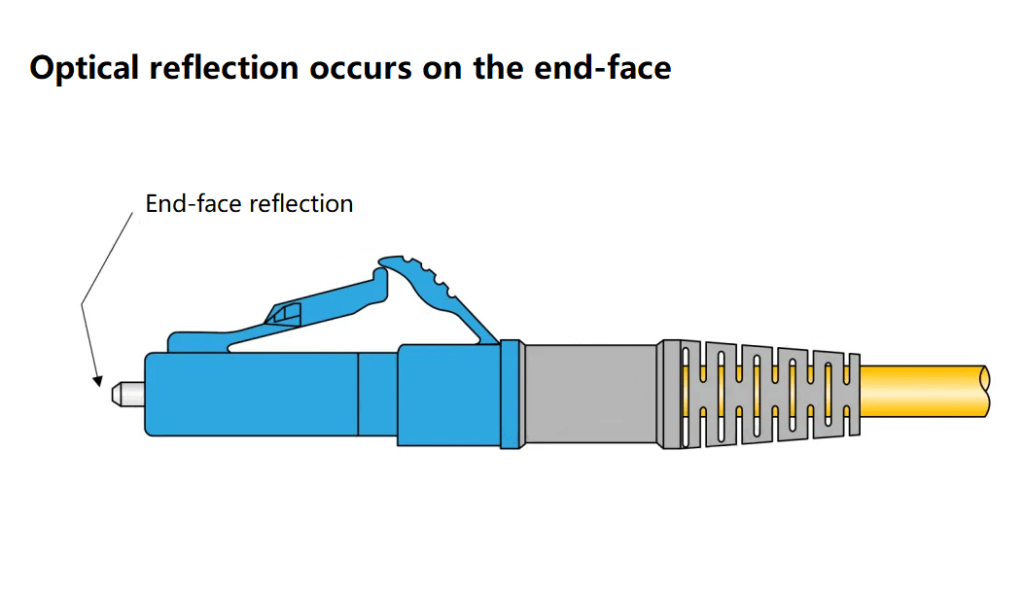
To mitigate this, connectors are fitted with springs to maintain optimal optical contact.
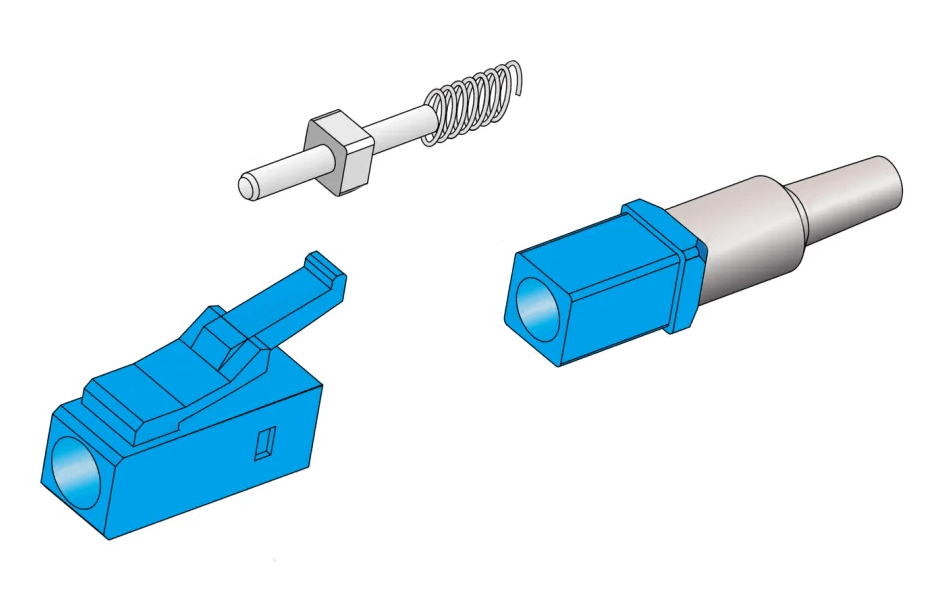
The common end-face contact types include:
PC (Physical Contact): Ensures solid fiber end-face contact to establish a connection.
UPC (Ultra Physical Contact): Features a spherical ferrule end-face to reduce reflection.
APC (Angled Physical Contact): Employs an 8° angled end-face to minimize reflection by directing it away from the main optical path.
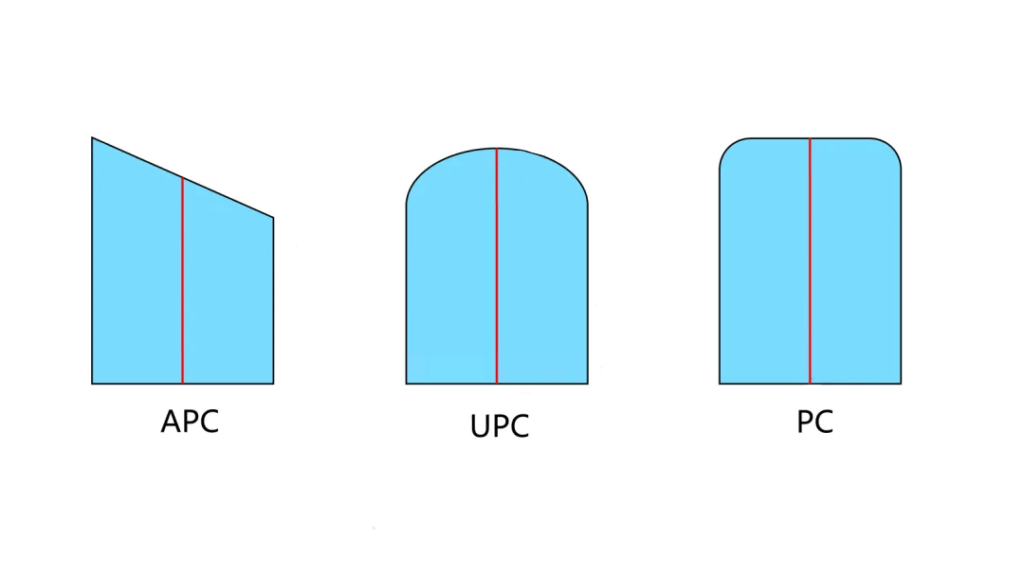
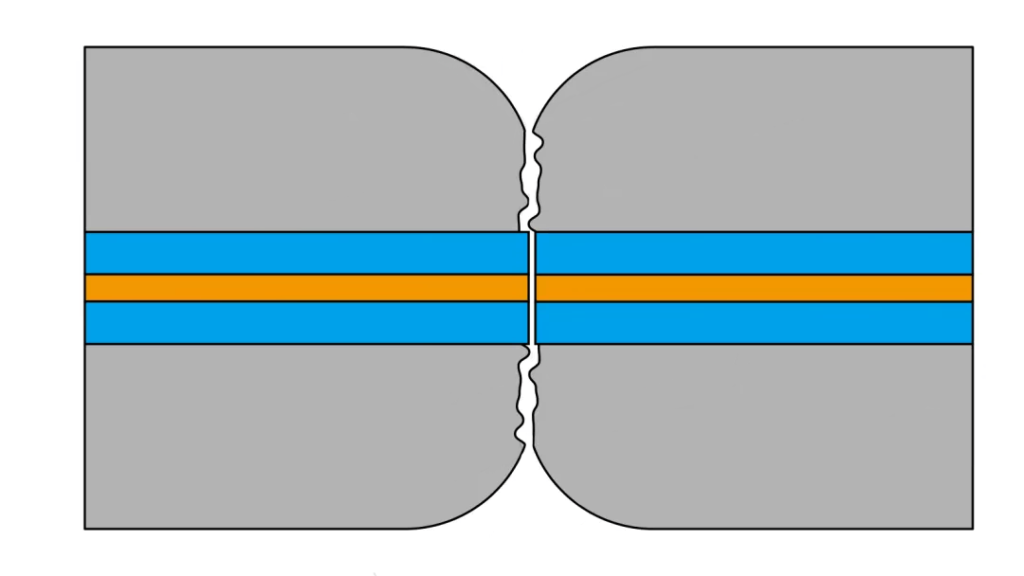
Among these, APC offers the highest anti-reflection capability, followed by UPC and PC.
Multi-Fiber and Emerging Connectors
While single-fiber connectors house one fiber (monomode or multimode), multi-fiber connectors like MPO/MTP accommodate multiple fibers, typically used with MT ferrules. These structures range from 8 to 72 fibers, supported by advancements in non-physical contact methods such as anti-reflective coatings or built-in lenses.
Related Products:
-
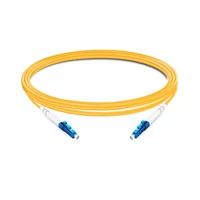 1m (3ft) Simplex OS2 Single Mode LC UPC to LC UPC PVC (OFNR) Fiber Optic Cable
$1.20
1m (3ft) Simplex OS2 Single Mode LC UPC to LC UPC PVC (OFNR) Fiber Optic Cable
$1.20
-
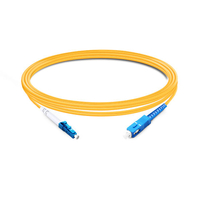 1m (3ft) Simplex OS2 Single Mode LC UPC to SC UPC LSZH Fiber Optic Cable
$1.30
1m (3ft) Simplex OS2 Single Mode LC UPC to SC UPC LSZH Fiber Optic Cable
$1.30
-
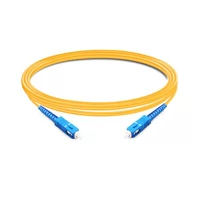 1m (3ft) Simplex OS2 Single Mode SC UPC to SC UPC PVC (OFNR) Fiber Optic Cable
$1.30
1m (3ft) Simplex OS2 Single Mode SC UPC to SC UPC PVC (OFNR) Fiber Optic Cable
$1.30
-
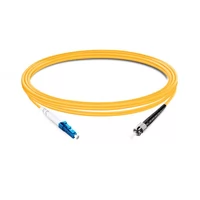 1m (3ft) Simplex OS2 Single Mode LC UPC to ST UPC PVC (OFNR) Fiber Optic Cable
$1.30
1m (3ft) Simplex OS2 Single Mode LC UPC to ST UPC PVC (OFNR) Fiber Optic Cable
$1.30
-
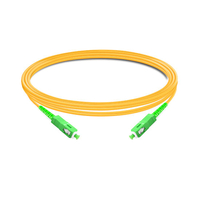 1m (3ft) Simplex OS2 Single Mode SC APC to SC APC PVC (OFNR) Fiber Optic Cable
$1.60
1m (3ft) Simplex OS2 Single Mode SC APC to SC APC PVC (OFNR) Fiber Optic Cable
$1.60
-
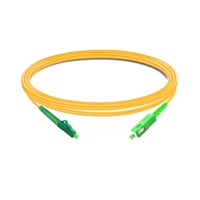 1m (3ft) Simplex OS2 Single Mode LC APC to SC APC PVC (OFNR) Fiber Optic Cable
$1.60
1m (3ft) Simplex OS2 Single Mode LC APC to SC APC PVC (OFNR) Fiber Optic Cable
$1.60
-
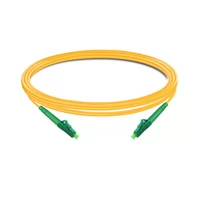 1m (3ft) Simplex OS2 Single Mode LC APC to LC APC PVC (OFNR) Fiber Optic Cable
$1.60
1m (3ft) Simplex OS2 Single Mode LC APC to LC APC PVC (OFNR) Fiber Optic Cable
$1.60
-
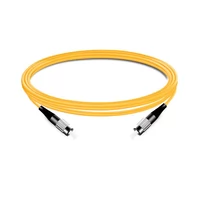 1m (3ft) Simplex OS2 Single Mode FC UPC to FC UPC PVC (OFNR) Fiber Optic Cable
$1.60
1m (3ft) Simplex OS2 Single Mode FC UPC to FC UPC PVC (OFNR) Fiber Optic Cable
$1.60
-
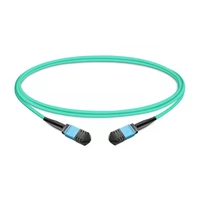 1m (3ft) 12 Fibers Female to Female MPO Trunk Cable Polarity B LSZH OM3 50/125 Multimode Fiber
$20.00
1m (3ft) 12 Fibers Female to Female MPO Trunk Cable Polarity B LSZH OM3 50/125 Multimode Fiber
$20.00
-
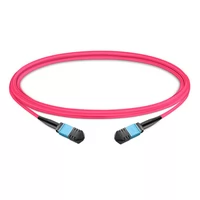 1m (3ft) 12 Fibers Female to Female MPO Trunk Cable Polarity B LSZH Multimode OM4 50/125
$21.00
1m (3ft) 12 Fibers Female to Female MPO Trunk Cable Polarity B LSZH Multimode OM4 50/125
$21.00
-
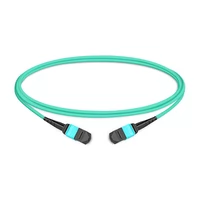 1m (3ft) 12 Fibers Female to Female Elite MTP Trunk Cable Polarity B Plenum (OFNP) OM3 50/125 Multimode Fiber
$36.00
1m (3ft) 12 Fibers Female to Female Elite MTP Trunk Cable Polarity B Plenum (OFNP) OM3 50/125 Multimode Fiber
$36.00
-
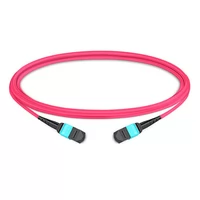 1m (3ft) 12 Fibers Female to Female Elite MTP Trunk Cable Polarity B LSZH Multimode OM4 50/125
$36.00
1m (3ft) 12 Fibers Female to Female Elite MTP Trunk Cable Polarity B LSZH Multimode OM4 50/125
$36.00
